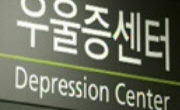고용시장의 유연화 흐름 속에서 불안정 고용이 증가하고 있으며 실업자뿐만 아니라 비경제활동인구 증가 문제도 심각해지고 있다. 고용불안은 정신건강에 부정적 영향을 준다고 알려져 있...
http://chineseinput.net/에서 pinyin(병음)방식으로 중국어를 변환할 수 있습니다.
변환된 중국어를 복사하여 사용하시면 됩니다.
- 中文 을 입력하시려면 zhongwen을 입력하시고 space를누르시면됩니다.
- 北京 을 입력하시려면 beijing을 입력하시고 space를 누르시면 됩니다.

반복되는 고용불안 발생 패턴과 정신건강의 관계 연구 = An Association between the Pattern of Repeated Job Insecurity and Mental Health
한글로보기https://www.riss.kr/link?id=A107974949
- 저자
- 발행기관
- 학술지명
- 권호사항
-
발행연도
2021
-
작성언어
-
-
주제어
고용불안 ; 우울 ; 자아존중감 ; 치유 모형 ; 한계점 모형 ; Job Insecurity ; Depression ; Self-esteem ; Healing Model ; Breaking Point Model
-
KDC
331
-
등재정보
KCI등재
-
자료형태
학술저널
-
수록면
151-176(26쪽)
- 제공처
-
0
상세조회 -
0
다운로드
부가정보
국문 초록 (Abstract)
고용시장의 유연화 흐름 속에서 불안정 고용이 증가하고 있으며 실업자뿐만 아니라 비경제활동인구 증가 문제도 심각해지고 있다. 고용불안은 정신건강에 부정적 영향을 준다고 알려져 있으나 불안의 누적·반복 패턴과 정신건강 간의 관계를 살펴본 연구는 부족했다. 본 연구는 과거의 충격은 시간이 흐르면서 약화된다는 치유 모형과 스트레스의 축적이 특정 기준을 넘을 때 변화가 나타난다는 한계점 모형에 따라 과거 고용불안 경험이 현재의 정신건강에 미치는 영향을 살펴보았다. 한국복지패널자료(8기~14기)를 활용하여 10기~13기 임금근로자, 실업자, 구직포기자, 취업준비자 중 연령 조건을 충족한 2,673명을 선정하였다. 고용불안의 객관적, 주관적 측면을 모두 고려하여 최소자승회귀분석을 수행하였다. 분석 결과, 일회성의 고용불안 경험으로 인한 유의한 우울 및 자아존중감 악화는 발견되지 않았고 이를 넘어서는 불안이 최근까지 연속해 발생한 경우 정신건강의 악화 양상이 부분적으로 나타나 한계점의 존재를 확인하였다. 과거에 고용이 불안했어도 최근 고용안정을 경험한 집단에서는 고용안정 집단에 비해 정신건강 수준이 낮지 않아 치유 가설을 지지하였다. 본 연구는 반복적으로 고용불안이 누적되고 있는 집단에 대한 관심과 고용불안 상태가 만성적으로 이어지지 않도록 신속한 정책적 개입이 필요함을 시사한다.
다국어 초록 (Multilingual Abstract)
Job insecurity is increasing due to the flexibility in the job market, and the problem of increasing economically inactive population as well as the unemployed is also becoming serious. Job insecurity is known to have a negative impact on mental healt...
Job insecurity is increasing due to the flexibility in the job market, and the problem of increasing economically inactive population as well as the unemployed is also becoming serious. Job insecurity is known to have a negative impact on mental health, but there is a lack of research on the relationship between accumulated and repeated job insecurity and mental health. We examined the impact of past job insecurity on current mental health according to the healing model that past shocks are weaker than current shocks and the breaking point model that changes occur when stress accumulation exceeds certain points. Using Korea Welfare Panel Study Data(cycles 8~14), 2,673 of wage earners, the unemployed, discouraged workers, and job seekers were selected. We considered both objective and subjective aspects of job insecurity and used Ordinary Least Squares(OLS) regression in the analysis. We found that there was no significant deterioration in depression and self-esteem due to the one-time job insecurity, but if job insecurity occurred continuously until recently, it could worsen mental health, which confirmed the breaking point hypothesis. In addition, people who were unstable in employment in the past but are stable in recent years didn’t have a lower level of mental health than job security groups, which supported the healing hypothesis. Therefore, this study urges attention to people who experience repeated and accumulated job insecurity, suggesting that prompt policy intervention is required to prevent job insecurity from becoming chronic.
목차 (Table of Contents)
- Ⅰ. 서론 Ⅱ. 이론적 검토 Ⅲ. 연구방법 Ⅳ. 연구결과 Ⅴ. 고찰 및 결론 참고문헌
- Ⅰ. 서론 Ⅱ. 이론적 검토 Ⅲ. 연구방법 Ⅳ. 연구결과 Ⅴ. 고찰 및 결론 참고문헌
동일학술지(권/호) 다른 논문
-
- 한국보건사회학회
- 양준용(Joon Yong Yang)
- 2021
- KCI등재
-
특수형태근로종사자의 노동환경이 주관적 건강에 미치는 영향
- 한국보건사회학회
- 장지현(Jihyun Jang)
- 2021
- KCI등재
-
인구정책의 통치성 분석 : 저출산 정책과 가족계획사업 비교
- 한국보건사회학회
- 박지원(Jiwon Park)
- 2021
- KCI등재
-
토픽모델링을 활용한 코로나19 백신에 대한 언론 보도 양상 분석
- 한국보건사회학회
- 윤현준(Yun Hyun Jun)
- 2021
- KCI등재




 스콜라
스콜라





